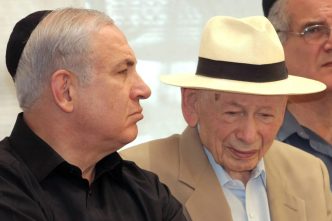Basic Information
| Field | Detail |
|---|---|
| Name | Doughtry Long (often “Doc” Long) |
| Birth | March 14, 1942, Atlanta, Georgia |
| Death | January 27, 2020, Trenton, New Jersey (age 77) |
| Childhood Home | Trenton, New Jersey |
| Family Background | Twin; parents: Doughtry Long Sr. (1913–1982) and Jessie Wooden (1920–1986) |
| Education | West Virginia State College (undergraduate); M.A. in Urban Studies, The College of New Jersey |
| Primary Roles | Educator, poet, community activist, mentor |
| Teaching Career | Trenton Central High School, 30+ years (literature and creative writing) |
| Additional Service | Peace Corps volunteer in West Africa; organizer of African American Studies at Trenton State Prison |
| Notable Works | Black Love, Black Hope (1971); A Song for Nia; Timbuktu Blues; Rules for Cool; Zoom Sway; Book of Numbers (children’s); Darker Light (CD) |
| Awards & Honors | Broadside Press Award for Poetry; NJ State Council on the Arts fellowship; Governor’s Award for Excellence in Teaching; Passage Theater tribute |
| Affiliations | Cave Canem; Geraldine R. Dodge Poetry Foundation; NJ Artist Teacher Institute; NYC Poetry in the Schools |
| Family | Ex-wife Talita Long (née Gillman); daughters: Lori Ann Rambough (Sommore), Nitara “Nia” Long, Djamila McRae; grandchildren: Massai Zhivago Dorsey II, Kez Sunday Udoka, Ronin Thomas McRae, Devin Eugene McRae |
Early Years and Education
Born in 1942 as a twin in Atlanta and raised in Trenton, Doughtry Long grew up amid the currents of migration, industry, and hope that shaped mid-century Black urban life. Trenton Central High School formed an early crucible, and from there he moved to West Virginia State College, a historically Black institution that nurtured his intellectual appetite. He later completed a master’s in Urban Studies at The College of New Jersey, sharpening a lens that would frame his work: education as civic duty, and literature as a tool for social repair.
The civil rights era stamped his worldview with fire. In 1970, he resigned as Associate Dean of Students at the University of Pennsylvania in protest of policies affecting Black students—a line in the sand that foretold decades of advocacy. The same conviction took him abroad with the Peace Corps to West Africa, where he served as a community development specialist and helped recruit volunteers from HBCUs. Home or abroad, his compass pointed toward equity.
Teaching, Programs, and Community Work
For more than three decades at Trenton Central High School, Long taught literature and creative writing with the zeal of a conductor coaxing an orchestra to life. His classroom became a lighthouse: a place where students learned to navigate language and, by extension, their own possibilities.
- Built student-centered literary platforms, including the Phoenix Literary Magazine (grant-supported).
- Helped organize the African American Studies Program at Trenton State Prison, threading education into places where opportunity was often barred.
- Worked with NYC’s Poetry in the Schools, broadening access to the art form.
- Received statewide recognition, including the Governor’s Award for Excellence in Teaching.
Measured in salaries, the profession was modest. Measured in minds opened and voices awakened, it was abundant.
Poet of Black Love and Hope
Long’s poems hum like a saxophone riff—melodic, exact, improvisational. He wrote across genres: collections for adults, a children’s book dedicated to his grandchildren, and even a compact disc that merged performance and word.
| Work | Type | Year/Note |
|---|---|---|
| Black Love, Black Hope | Poetry collection | 1971 |
| A Song for Nia | Poetry collection | n.d. |
| Timbuktu Blues | Poetry collection | n.d. |
| Rules for Cool | Poetry collection | n.d. |
| Zoom Sway | Poetry collection | n.d. |
| Book of Numbers | Children’s book | Dedicated to grandchildren |
| Darker Light | Spoken word/poetry CD | n.d. |
His work appeared in journals such as The Literary Review (50th Anniversary Edition), Brilliant Corners, Obsidian, The Painted Bride Quarterly, US1 Worksheets, and Black Renaissance Noir. Anthologies including The Poetry of Black America, Gathering Ground, and Let Loose On the World further amplified his voice. Honors like the Broadside Press Award and a fellowship from the New Jersey State Council on the Arts recognized the craftsmanship and pulse of his lines.
Outside the page, Long absorbed the world through travel, jazz, fishing, and photography—passions that slipped into his metaphors and his music of syntax.
Family Ties and Complex Bonds
The story of Doughtry Long’s family is textured: tender, strained, then tender again. He married Talita Long (née Gillman), a teacher and printmaker of Trinidadian descent. The marriage ended when their daughter Nia was young, and geography split the household—Talita moved with Nia first to Iowa City and then to South Los Angeles, while Long remained in Trenton. Over time, as life’s chords changed, his children spoke openly about the difficulties and the healing that followed.
Long was the father of three daughters:
- Lori Ann Rambough (Sommore), trailblazing comedian and actress.
- Nitara “Nia” Long, acclaimed actress born October 30, 1970.
- Djamila McRae, whose life remains more private, with husband Melford McRae and sons Ronin and Devin.
Nia later framed her relationship with her father as a journey from absence to forgiveness, from questions to gratitude for the artistry and civic commitment he modeled. Long cherished his grandchildren—Massai Zhivago Dorsey II (b. 2000) and Kez Sunday Udoka (b. 2011) among them—memorializing them in his children’s book.
Family Snapshot
| Name | Relation | Notables |
|---|---|---|
| Talita Long (née Gillman) | Ex-wife | Teacher and printmaker; Trinidadian heritage |
| Sommore (Lori Ann Rambough) | Daughter | Comedian and actress |
| Nia Long | Daughter | Actress; mother of Massai II and Kez |
| Djamila McRae | Daughter | Married to Melford McRae; mother of Ronin and Devin |
| Massai Zhivago Dorsey II | Grandson | Born 2000 |
| Kez Sunday Udoka | Grandson | Born 2011 |
| Ronin Thomas McRae | Grandson | — |
| Devin Eugene McRae | Grandson | — |
A Career Measured in Impact, Not Income
Long’s professional life reflected the finances of many educators and poets: consistent, service-oriented, and rarely extravagant. His income came primarily from public school teaching, occasional grants, awards, book sales, and literary programming. He invested his time—and whatever resources he could muster—into students, manuscripts, workshops, and community forums that multiplied opportunity. Influence over income was his north star.
Remembrance and Media Presence (2020–2025)
After January 27, 2020, tributes flowed from classrooms, stages, and family living rooms. Trenton Central High School hosted remembrances; students and colleagues spoke of a man who opened doors they didn’t know existed. Family reflections—especially from Nia—surfaced in interviews and memorial posts, cultivating a collective portrait of a father whose words carried more than rhyme; they carried responsibility.
By 2025, mentions are largely commemorative: reposted photographs on social platforms, pull-quotes of lines that once electrified a school auditorium, and video tributes on YouTube that gather comments like candles. The narrative doesn’t crescendo to new headlines; instead, it lingers, steady, in the air of the places he served.
Milestones and Markers: A Select Timeline
| Year | Event |
|---|---|
| 1942 | Born March 14 in Atlanta, Georgia; raised in Trenton, NJ |
| 1960s | Studies at West Virginia State College; M.A. in Urban Studies at The College of New Jersey |
| 1970 | Resigns as Associate Dean at the University of Pennsylvania in protest |
| 1971 | Publishes Black Love, Black Hope |
| 1970s | Peace Corps service in West Africa; recruits from HBCUs |
| 1970s–2000s | Teaches literature and creative writing at Trenton Central High School; launches Phoenix Literary Magazine |
| 1990s–2010s | Receives Broadside Press Award; NJ State Council fellowship; Governor’s Award; affiliations with Dodge, Cave Canem |
| 2000 | Grandson Massai Zhivago Dorsey II born |
| 2011 | Grandson Kez Sunday Udoka born |
| 2020 | Passes away on January 27 in Trenton, NJ |
| 2020–2025 | Memorials, family reflections, and community tributes continue |
FAQ
Who was Doughtry “Doc” Long?
He was an educator, poet, and community activist from Trenton, New Jersey, known for mentoring students and advancing arts and education initiatives.
How is he related to Nia Long and Sommore?
He was the father of actress Nia Long and comedian Sommore, as well as Djamila McRae.
Where did he teach?
He taught literature and creative writing for more than 30 years at Trenton Central High School.
What did he write?
His works include Black Love, Black Hope (1971), A Song for Nia, Timbuktu Blues, Rules for Cool, Zoom Sway, and a children’s book titled Book of Numbers.
Did he serve internationally?
Yes, he volunteered in the Peace Corps in West Africa as a community development specialist and helped recruit from HBCUs.
What awards did he receive?
He earned the Broadside Press Award for Poetry, a fellowship from the NJ State Council on the Arts, and the Governor’s Award for Excellence in Teaching.
When did he pass away?
He died on January 27, 2020, at age 77, in Trenton, New Jersey.
Are there videos commemorating him?
Yes, online tributes and school memorial videos feature reflections from family, students, and colleagues.
Was he wealthy?
No, his financial profile matched that of a lifelong educator and poet; his emphasis was on impact rather than accumulation.
What shaped his activism?
The civil rights era and his direct experiences in education fueled his commitment to equity, opportunity, and the transformative power of the arts.














